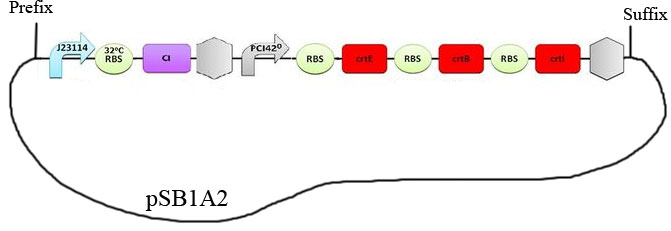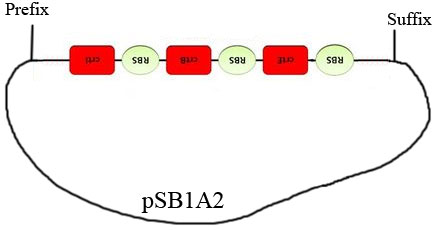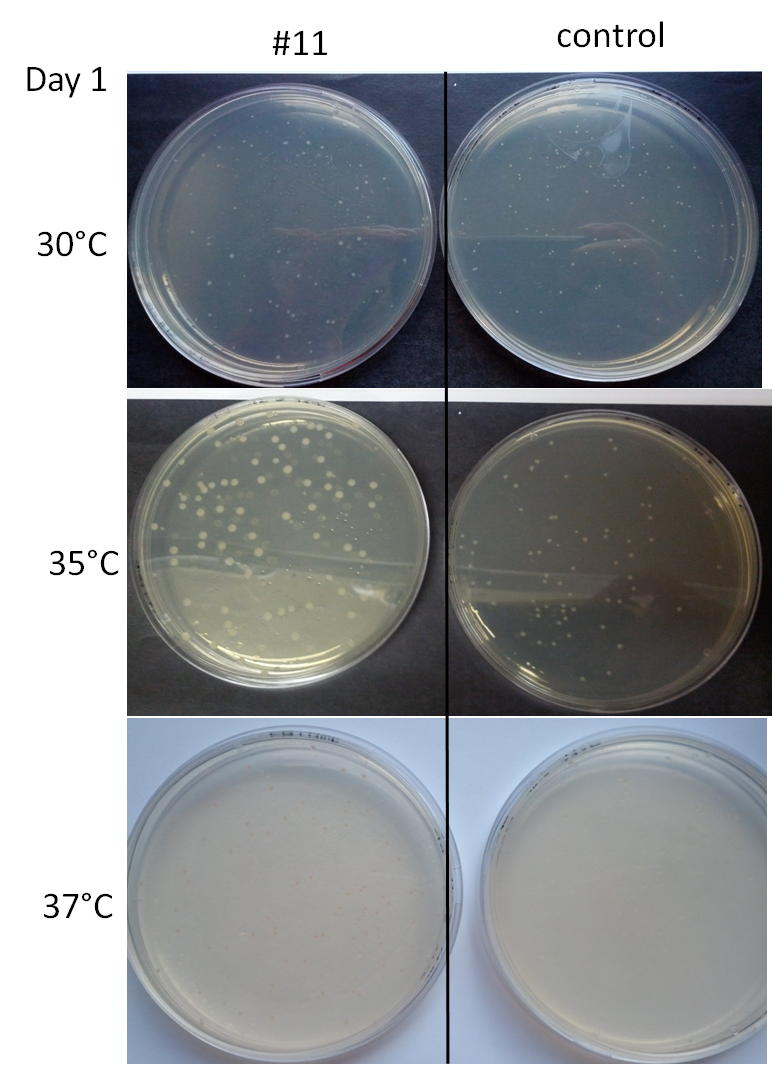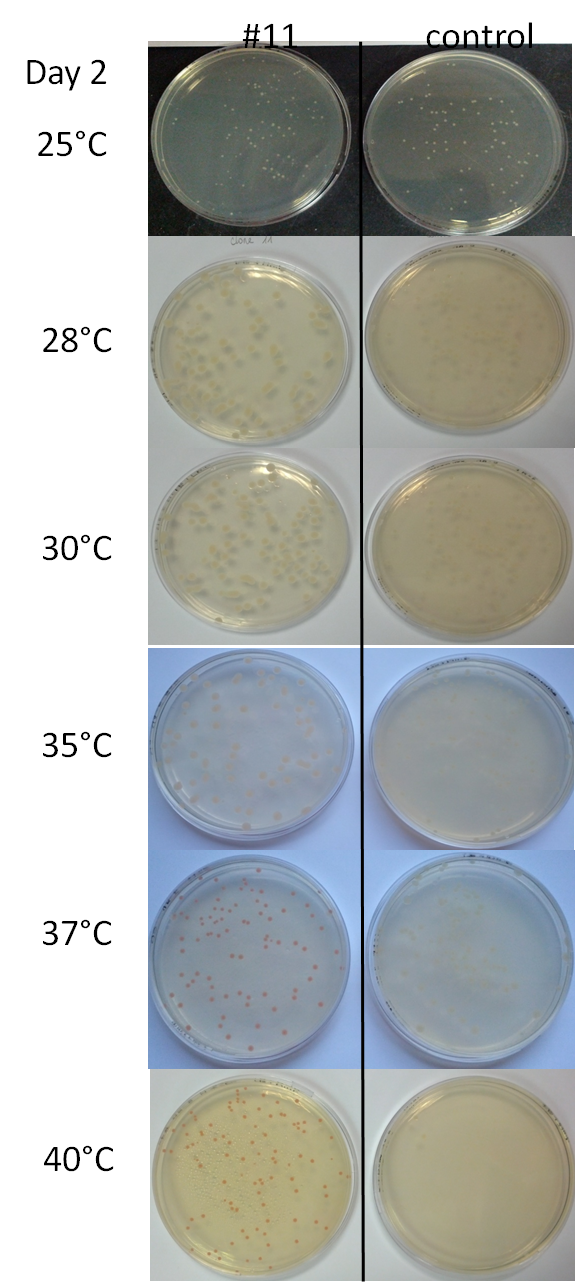Team:Paris-Saclay/Project/Characterisation
From 2012.igem.org
YohannPetiot (Talk | contribs) |
YohannPetiot (Talk | contribs) (→Characterisation) |
||
| Line 55: | Line 55: | ||
We tested our organism's temperature range for 2 days. The first day, 24 hours after spreading liquid cultures on Petri dishes LB+agar+Ampicilline, we had the following results: | We tested our organism's temperature range for 2 days. The first day, 24 hours after spreading liquid cultures on Petri dishes LB+agar+Ampicilline, we had the following results: | ||
| - | [[File:Image57.png]] | + | [[File:Image57.png|center|550px]] |
| - | [[File:Image58.png]] | + | [[File:Image58.png|center|550px]] |
{{Team:Paris-Saclay/Follow}} | {{Team:Paris-Saclay/Follow}} | ||
</div> | </div> | ||
Revision as of 01:16, 27 September 2012
Characterisation
Successfully transformed living colonies after Gibson assembly are obtained with the construction detailed below:
The bacteria carrying this plasmid are expected to turn red below 32°C and over 42°C. We used this construction in the characterization experiments. After the Gibson assembly, we obtained many white clones and only one red colony which was named #11. After sequencing, white clones proved to be without the plasmid. However for clone # 11 , after having received the sequencing results of our construct, we realized that the Gibson Assembly didn’t work as expected. The construct effectively obtained is figured below:
We can see that only the part containing the lycopene biosynthesis chain was inserted. Even worse, it was oriented the wrong way around! We had the results from the sequencing recently, so the reason why the part could have been inserted this way remains a mystery that we are still attempting to unravel. The reason why the colonies are red-stained is another strange thing, because there is no promoter before the insertion. The fact that the RBS are still present can however support the argument that a leaky promoting activity could be located upstream from the operon, creating an mRNA.
In parallel to the sequencing, a test had been done to determine the range of temperature in which clones turned red. Liquid cultures of bacteria were spread on medium containing Ampicillin, then incubated at different temperatures: 25,28,30,35,37,40,42 °C. We observed the colonies color after letting them grow for 2 days. As a control, we used a strain of bacteria containing a plasmid with the Ampicillin resistance in order to control the growth and the color. We tested our organism's temperature range for 2 days. The first day, 24 hours after spreading liquid cultures on Petri dishes LB+agar+Ampicilline, we had the following results:
 "
"







Follow us !